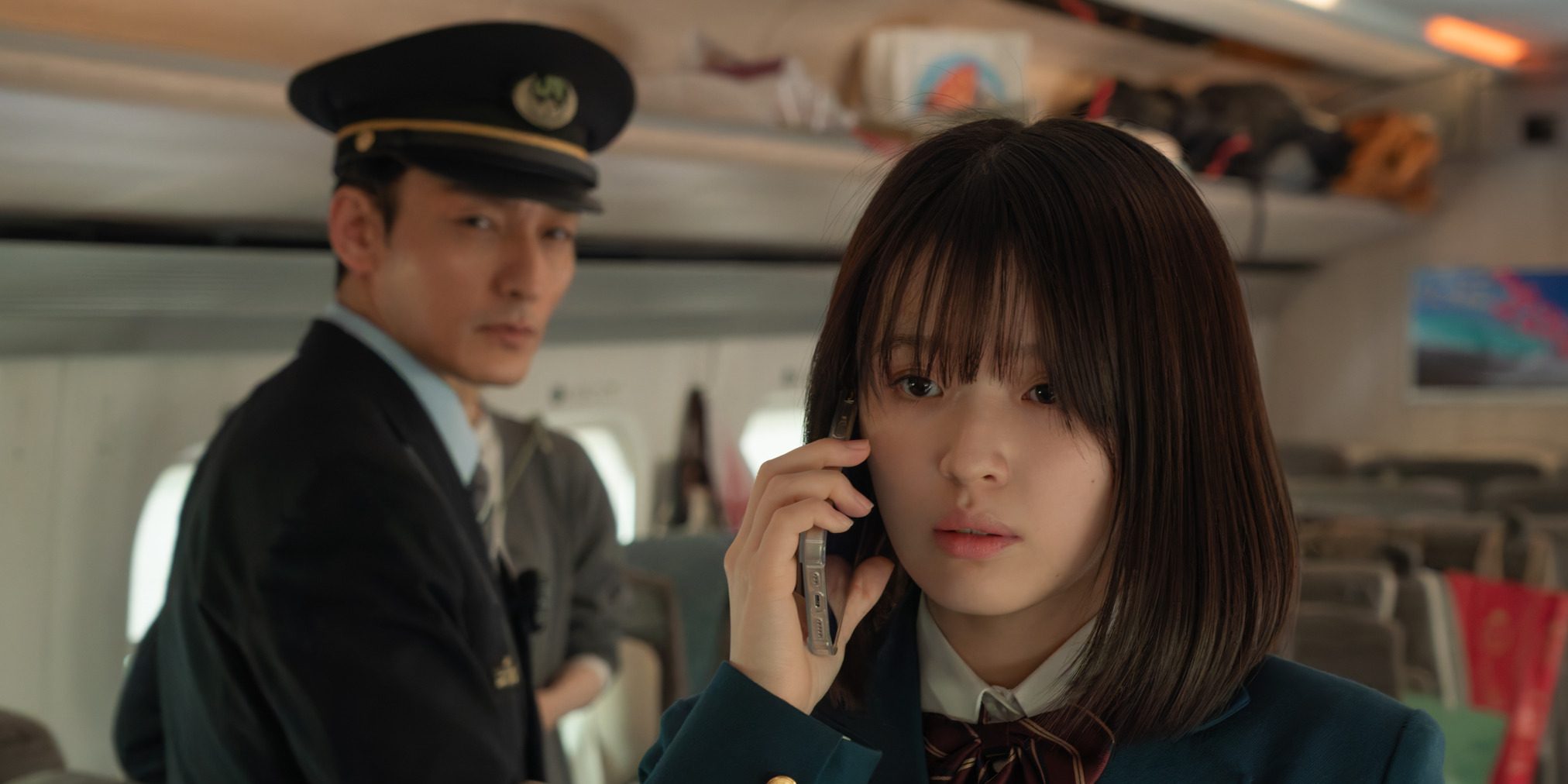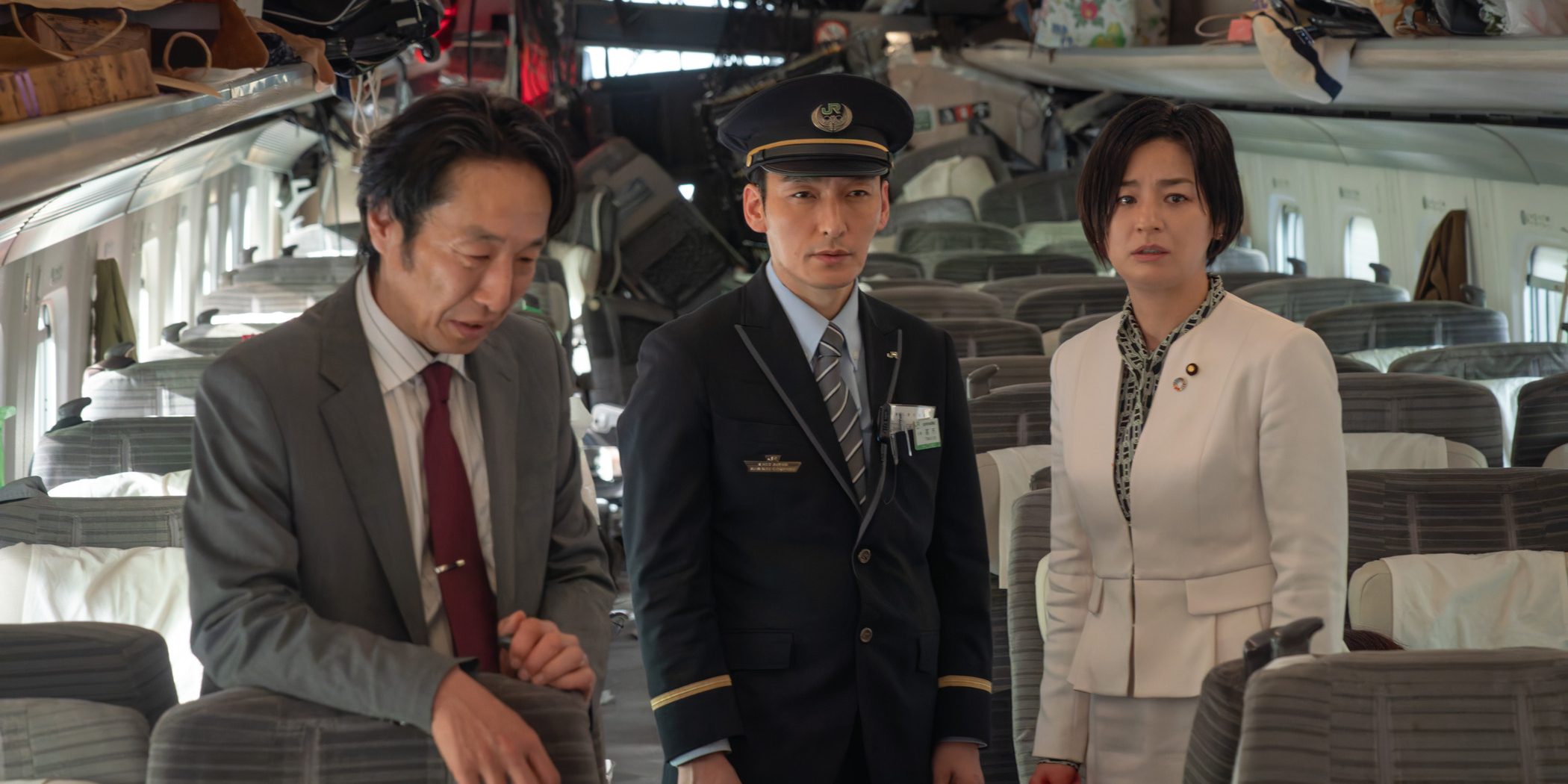In Netflix’s ‘Bullet Train Explosion,‘ originally titled ‘Shinkansen Daibakuha,’ a Tokyo-bound bullet train is rigged to explode if it drops below 100 km/h, causing mass panic to break out amongst the passengers as they wait to be rescued by the authorities. Helmed by Shinji Higuchi, the action thriller film showcases the struggles of the train’s inhabitants as they try to work together as a group under the stewardship of the train’s conductor, Takaichi. Meanwhile, the police, government, and control technicians toil around the clock to find a solution to the precarious situation and hopefully save the lives of those involved. However, matters get complicated when they realize that the bomber’s plan is far more complex in nature, leading them to investigate the matter thoroughly.
Bullet Train Explosion is a Reimagination of a Japanese Thriller Movie
Although centered on a fictional story, ‘Bullet Train Explosion’ serves as a remake/continuation of the 1975 film ‘Bullet Train’ directed by Junya Sato. The movie’s screenplay was drafted by Kazuhiro Nakagawa and Norichika Ôba, paying homage to the classic thriller movie while reinventing the formula in specific ways. Intriguingly, the 1975 film was itself a response to disaster films like ‘Earthquake’ and ‘The Towering Inferno. The Netflix movie’s plot also refers to Sato’s film, making it a spiritual successor to the original in more ways than one. Director Shinji Higuchi admitted that the movie began with a different title in mind. However, with each step of the development process, it started resembling the original more and more, compelling the team to embrace the similarities and use them to inform the narrative elements and themes.

One of the challenges Higuchi faced while reimagining ‘Bullet Train,’ was updating the 1975 movie for a modern audience. The director stated that Japan’s social climate had undergone radical changes over the years, forcing them to rethink the film’s antagonist. He admitted that the original holds a special space in his heart as he saw it in his formative years during childhood. “It was the first non-kids film I saw. There was a criminal who committed a crime and was going to pay back with their life. That was the story,” he said. Because Higuchi had skipped school to watch the film when he was 10, he identified with the moralistic themes at the heart of the narrative. The result was something unforgettable that left an indelible mark on his psyche, leading him to revisit those ideas in ‘Bullet Train Explosion.’ SPOILERS AHEAD.
Takaichi and Yuzuki Onodera are Fictional Characters at the Heart of the Story
While ‘Bullet Train Explosion’ largely revolves around a tense premise and spectacular action, the film’s central drama is brought to life through its wide array of characters. Two figures who play a massive role in that respect are Takaichi, the train’s conductor, and Yuzuki Onodera, the film’s main antagonist. They are fictional characters brought to life by scriptwriters Kazuhiro Nakagawa and Norichika Ôba. From a philosophical standpoint, both characters stand on opposite spectrums, showcasing the difference of opinion between them. While Takaichi feels responsible for the safekeeping of all passengers on the Hayabusa No. 60, Yuzuki is more nihilistic and determined to blow up the train to prove a point about society and humanity in general. As such, Takaichi tries to show the high school girl that there is more to life than just anger and pessimism.

Director Shinji Higuchi stated that Yuzuki’s sense of hopelessness was inspired by conversations with younger generations who felt that the future was bleak and pointless. It brought a real-life perspective into the narrative, showcasing the turmoil raging within contemporary society and within the youths of today. On the opposite end, Takaichi is a man from a different generation, one who believes in the inherent goodness of man and seeks to carry out his duty, even if it means sacrificing himself. This clash of ideals sets up the stakes for an emotional climax near the film’s end while also diving into the moral quandaries of people’s choices and how their upbringing affects their future. Therefore, the two characters fulfill a specific role in the movie, highlighting their importance even though they remain fictional in conception.
Read More: Bullet Train Explosion Ending Explained: Who Planted the Bombs? Why?


